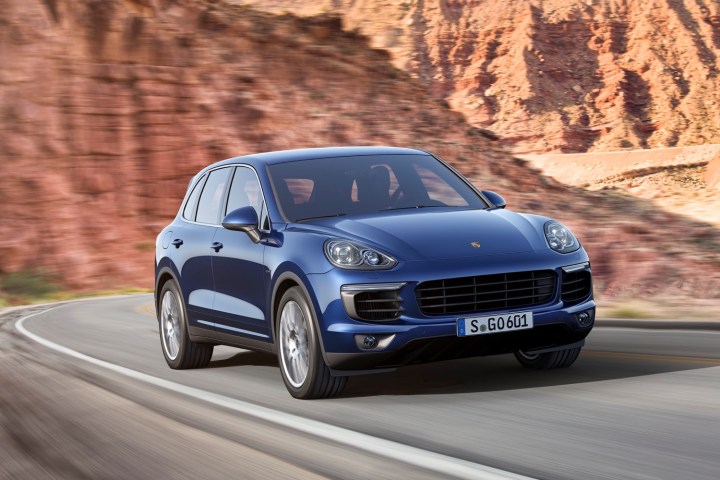
Sales of 2014 through 2016 Cayenne Diesel SUVs are being halted until further notice, in light of the “unexpected” EPA finding that the vehicles were equipped with software that allowed them to cheat on emissions tests, a terse Porsche statement disclosed. Dealers will not be able to sell any new or used Cayenne diesels they might have in stock until Porsche ends the stop-sale order.
Earlier this week, the EPA said that Volkswagen Group models using a 3.0-liter V6 diesel engine were equipped with the same “defeat device” software previously found on 482,000 2009 to 2015 models in the U.S. equipped with a different, four-cylinder powertrain. Although Porsche is stopping sales of 2014-2016 Cayenne Diesels, the EPA only cited the 2015 model, along with the 2014 Volkswagen Touareg TDI, as well as the 2016 Audi A6, A7, A8, and Q5 TDI.
As with models implicated in emissions cheating back in September, the EPA said these Audi, Porsche, and Volkswagen models were equipped with software that allowed onboard systems to detect an emissions test, and adjust vehicle parameters. On the road, emissions controls are bypassed, meaning these vehicles could be emitting up to nine times the legal amount of pollutants, the EPA said.
Porsche initially said it was “surprised” by the finding, and claimed that it believed the Cayenne Diesel was “fully compliant” with emissions regulations. The carmaker notes that all affected vehicles are still safe to drive, and that owners can continue doing just that. Porsche did not discuss a timeline for a recall, or any potential fixes.
While it deals with accusations of additional cheating, Volkswagen also admitted this week that it understated the levels of carbon emissions in certifications for 800,000 cars worldwide. It said it uncovered “unexplained inconsistencies” in reporting of emissions levels during an internal investigation relating to the ongoing diesel scandal. The company estimates this latest issue could cost it $2.2 billion.
The affected cars are “mostly diesel” models from Volkswagen and other brands like Audi, Seat, and Skoda, implying that some gasoline models may be affected as well. VW said a recall will not be necessary in this case, which is not related to the “defeat device” software.


